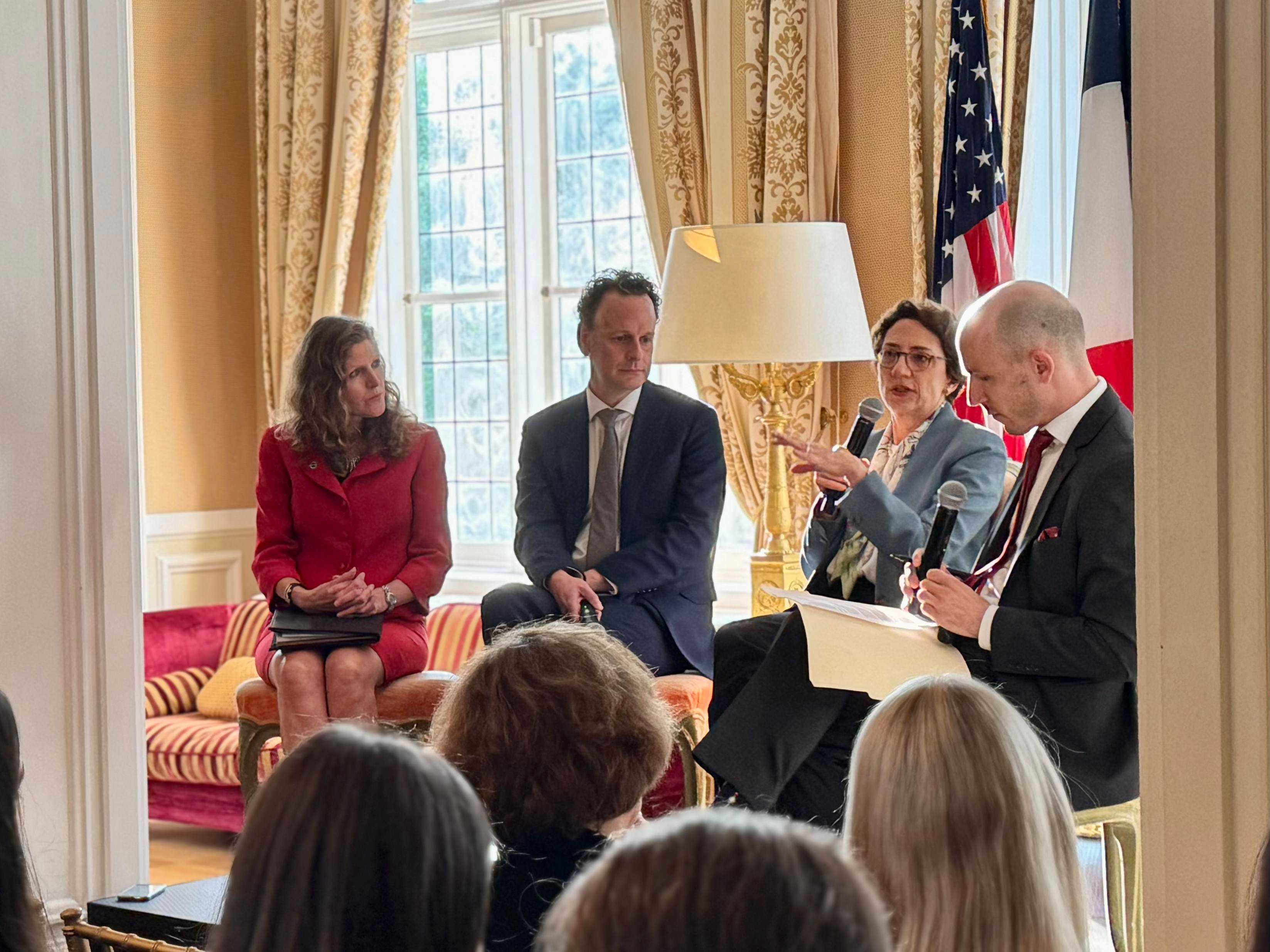Home>The Road Ahead: A Transatlantic Vision for Sustainable Mobility

30.06.2025
The Road Ahead: A Transatlantic Vision for Sustainable Mobility
On Tuesday, June 3rd, the Sciences Po American Foundation hosted the 2025 Sciences Po DC Transatlantic Forum at the French Residence, featuring a conversation on sustainable urban mobility from a transatlantic perspective.
The discussion featured panelists Andrei Greenawalt (Chief Policy Officer at Via), Petra Mollet (VP Strategic & International Programs at the American Public Transportation Association), and Polly Trottenberg (government official, seasoned transportation expert, and former Deputy Secretary of Transportation under Pete Buttigieg). The conversation was moderated by Max Bouchet, Director of Subnational Diplomacy at Meridian International Center.
Bouchet began the panel by referencing the handoff of the Olympic torch from Paris to Los Angeles as a moment of reflection for both cities. Paris’s preparations for the Olympics led to major changes in transportation, and presumably Los Angeles will undergo similar developments. He invited the panel to contrast European and American approaches to mobility and public transportation.
Mollet highlighted structural differences in how transportation and mobility is governed and funded between countries. Referencing France, she explained that “urban mobility is seen as a key policy lever to meet environmental, economic, and regional cohesion goals.” In contrast, the system in the US remains highly decentralized and fragmented, making large-scale coordination and investment more challenging. Trottenberg agreed that Europe has made larger, long-term investments and integrated planning models. However, she praised America’s decentralized model for allowing local experimentation and more choice on projects.
Greenawalt added a private sector perspective, noting that a lack of entrenched transportation systems in mid-sized American cities can lead to adopting new technologies and more innovation. Via’s first project was in Arlington, Texas, which was then the largest US city without public transit- and now has transitioned to an on-demand public transit system.
Global events, like the Olympics, also lead to more rapid changes in urban infrastructure. Paris’s preparations were held up as a model of how global visibility can drive investment in accessibility, modernizing, and metro expansion. Mollet also described this as a chance to redesign systems with a broader audience in mind, asking “if you do not speak English or French, how do you access the system?” Panelists noted that Los Angeles, in preparation for the 2028 Games, is pursuing a similarly ambitious agenda focused on zero-emission buses and improved car-free access.
The conversation then turned to how cities learn from one another and replicate successful models. Greenawalt explained that innovation tends to spread regionally, seeing clusters develop when mayors and transit agencies observe strong results in nearby cities. Mollet emphasized that international study tours often lead to practical changes back home, citing Seattle’s adoption of green bonds after seeing their use in London. Trottenberg also highlighted the importance of collaboration, citing her involvement with the National Association of City Transportation Officials as a space for dialogue and innovation.
In the Q&A portion of the discussion, the panel addressed the rise of new technologies such as AI and autonomous vehicles. Greenawalt spoke to their potential for improving efficiency and safety, but warned that how they are implemented will matter more than the technology itself. Trottenberg expressed concern about governance keeping pace with innovation, saying, “we may figure out the technology before we figure out the other pieces.”
The last audience question presented the connection between transportation systems, supply chains, and food access, to which the panelists responded by pointing to efforts during the pandemic to coordinate across federal agencies. Greenawalt added that transportation gaps often directly affect access to essentials, sharing a rider’s experience of being able to buy ice cream for the first time thanks to improved transit service. The story illustrates how improvements in transportation systems have meaningful impacts on people’s lives.